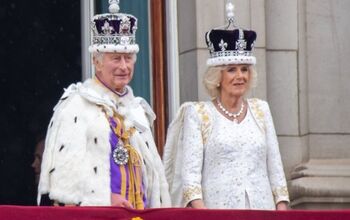New Company Claims Age-Reversal Treatment in Dogs Will Also Benefit Hu

Rejuvenate Bio was co-founded by George Church from Harvard Medical School. He says that dogs might not just be lovable furry companions, but the key to helping their humans beat the process of aging. Rejuvenated Bio has carried out preliminary trials of gene therapy to reverse aging in beagles, claiming that if and when their process works, animals will be younger because of added DNA code and instruction to their bodies.
Church said that clues about age-reversing in simple organisms like worms and flies have motivated them to look for bigger prizes in animals and eventually humans. He believes that gene therapy can increase life spans. He says they’ve already done trials in mice as well and once the trials in the dogs show more guidance, they’ll move to humans.
Because of the controversy behind animal experimentation, they’ve kept much of their dealings out of the eye of the public. Church says that people love their dogs, so increasing the lifespan of dogs will be something people will want to do. The FDA process will be much faster, he says, and they’ll be able to move to human trials sooner as well.
Related: Top 5 Ways to Keep a Senior Dog Mentally Sharp
Harvard biologist David Sinclair works with Church in the lab and says that reversing the effects of aging and increasing lifespan is the biggest thing that will happen in this century, and people will clamor for the opportunity to be involved.
The company has already won a grant to look at enhancing the performance of military dogs, and Harvard is looking at patenting a genetic way of age control in certain species. It’s not just science fiction, they say. Rejuvenate will look to stop fatal heart conditions in spaniels and Doberman pinschers in an effort to get data tthat will help the work in humans as well.
Gene therapy essentially works by inserting DNA code into a virus that then brings that code to an animal’s cells. They’ve already seen small successes in trials with mice. Church says that they are going to publish a report on a therapy that extends a rodent’s life due to the modification of two specific genes. He says the results of the study are quite intriguing.
Church is clear to say he is hoping that he’ll eventually be able to use the techniques for his own age reversal and if the treatment showed itself to be safe, he’d try it. His ultimate goal is for people to have minds of 130-year-olds in 22-year-old bodies.
Rejuvenate Bio has been reaching out to owners of Cavalier King Charles spaniels telling them that they had a gene therapy that could treat mitral valve disease in their dogs. Rejuvenate Bio’s CEO Daniel Oliver and science lead Noah Davidsohn went to the breed’s national show in Chicago and raised several thousand dollars for the trial for the mitral valve therapy as it kills half of the breed before they are ten years old. Patty Kanan is president of the American Cavalier King Charles Spaniel Club and says the impact of their work is very important to the breeders.
Related: Senior Dog Prom Proves Elderly Dogs Still Have The Right Ruff!
Not everyone is convinced, however. Rod Russell is the editor of CavalierHealth.org and says that there is no evidence that dogs can be made younger, and experimental drugs on pets is not okay. He believes donors are throwing money away.
Additionally, there are ethical concerns if it is found to be effective gene therapy. Longer life spans may mean dogs outlive owners and could even end up in shelters or euthanized as a result. And because there is a legal grey zone when it comes to pet experimentation, the benefit to pets may not always be for the pet, but for a pet’s owner. Matt Kaeberlein is a University of Washington researcher who has been testing a drug to see if it extends a dog’s life. He says that just because it may, there are other ethical concerns about letting it happen.

More by Lori Ennis























